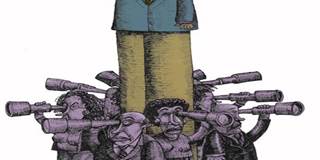Dynastic Asia
To the extent that culture matters in politics, the recent spate of leadership changes in East Asia suggests that Asian societies are more tolerant – if not supportive – of dynastic succession. But it is also clear that having distinguished relatives does not guarantee success in office.
SINGAPORE – To the extent that culture matters in politics, the recent spate of leadership changes in Northeast Asia suggests that Asian societies are more tolerant – if not supportive – of dynastic succession. South Korea’s recently elected president, Park Geun-hye, is the daughter of Park Chung Hee, who ruled the country from 1961 to 1979. China’s incoming president, Xi Jinping, is the son of Xi Zhongxun, a former vice premier. Japan’s new prime minister, Shinzo Abe, is the grandson and grandnephew of two former Japanese prime ministers, and the son of a former foreign minister. Kim Jong-un is the son and grandson of his two predecessors in North Korea.



SINGAPORE – To the extent that culture matters in politics, the recent spate of leadership changes in Northeast Asia suggests that Asian societies are more tolerant – if not supportive – of dynastic succession. South Korea’s recently elected president, Park Geun-hye, is the daughter of Park Chung Hee, who ruled the country from 1961 to 1979. China’s incoming president, Xi Jinping, is the son of Xi Zhongxun, a former vice premier. Japan’s new prime minister, Shinzo Abe, is the grandson and grandnephew of two former Japanese prime ministers, and the son of a former foreign minister. Kim Jong-un is the son and grandson of his two predecessors in North Korea.